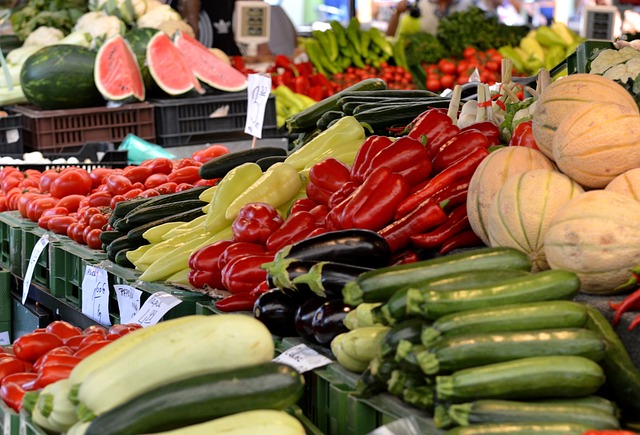Yard waste removal and recycling through advanced composting methods like vermicomposting and aerated static pile (ASP) composting offer significant environmental benefits by reducing the space and resources required for landfilling and minimizing greenhouse gas emissions. These sustainable practices not only divert organic matter from contributing to methane emissions but also produce rich compost that enhances soil health, improves water retention, and reduces the need for chemical fertilizers. Moreover, these methods contribute to carbon sequestration, helping to mitigate climate change. By adopting these composting techniques, communities can lower their environmental footprint, support biodiversity, and ensure the long-term health of ecosystems while also enriching the soil for future agricultural use. Yard Waste Removal and Recycling are integral to this eco-friendly approach, emphasizing the role of such practices in promoting environmental stewardship and educating the public on sustainable waste management solutions.
explore the significance of composting and recycling yard waste as pivotal practices in sustainable landscaping. This article delves into the transformative impact of yard waste removal on soil health, environmental benefits, and how innovative composting techniques can enrich both. Furthermore, it highlights local programs and resources that facilitate effective yard waste recycling and education, empowering communities to embrace these eco-conscious processes. Discover how Yard Waste Removal and Recycling plays a crucial role in the broader quest for environmental stewardship.
- Understanding the Role of Yard Waste Removal in Sustainable Landscaping
- Innovative Techniques in Composting Yard Waste for Soil Health and Environmental Benefits
- Local Programs and Resources for Yard Waste Recycling and Education
Understanding the Role of Yard Waste Removal in Sustainable Landscaping

Yard waste removal plays a pivotal role in sustainable landscaping, offering environmental benefits that extend beyond mere yard maintenance. As communities and individuals increasingly recognize the importance of eco-friendly practices, the composting and recycling of yard waste have emerged as key components in reducing landfill use and promoting soil health. By diverting organic materials like leaves, grass clippings, and garden trimmings from trash collections to composting facilities, these wastes are transformed into nutrient-rich humus that can be used to enrich the soil, thereby supporting the growth of healthy plants and reducing the need for chemical fertilizers. This not only closes the loop in a natural waste management system but also contributes to carbon sequestration, as organic matter in soil acts as a significant carbon sink. Recycling yard waste through composting initiatives also helps to maintain biodiversity by preserving habitats for various species and preventing the loss of valuable green spaces.
Moreover, municipalities and private organizations are increasingly offering yard waste removal services tailored to encourage recycling and composting. These services often include curbside pick-up, making it convenient for residents to participate in these sustainable practices. By facilitating the proper disposal of yard waste, such programs not only streamline the process of sustainable landscaping but also educate the public on the environmental impact of their choices. As a result, communities become more environmentally conscious and proactive in adopting sustainable landscaping practices, which are essential for creating resilient ecosystems and protecting the environment for future generations.
Innovative Techniques in Composting Yard Waste for Soil Health and Environmental Benefits

Yard waste removal and recycling play a pivotal role in maintaining soil health and offering environmental benefits. Traditional methods of disposal, such as landfilling, not only occupy valuable space but also contribute to greenhouse gas emissions when organic matter decomposes anaerobically. Innovative techniques in composting yard waste have emerged as a sustainable alternative, transforming what was once considered waste into a valuable resource for enriching soil. These methods include vermicomposting, which utilizes worms to break down organic materials, and aerated static pile (ASP) composting, which enhances the decomposition process through controlled aeration. Both techniques not only divert yard waste from landfills but also produce nutrient-rich compost that supports plant growth and improves soil structure. The compost aids in water retention, reduces the need for chemical fertilizers, and encourages beneficial microbial activity in the soil. Furthermore, these innovative composting methods contribute to carbon sequestration by capturing atmospheric carbon dioxide and storing it within the soil, thus mitigating climate change effects. The educational aspect of promoting such sustainable practices is crucial for fostering environmental stewardship and raising awareness about the importance of recycling yard waste into compost. This not only benefits individual gardeners and farmers but also has a broader impact on biodiversity and ecosystem health. By adopting these composting techniques, communities can significantly reduce their ecological footprint while simultaneously enhancing the fertility of their soils for future generations.
Local Programs and Resources for Yard Waste Recycling and Education

Local governments and environmental organizations have recognized the importance of sustainable waste management practices, including yard waste removal and recycling. These entities offer a variety of programs designed to educate residents on the benefits of composting organic materials from their yards. In many municipalities, yard waste recycling programs are in place to collect grass clippings, leaves, branches, and other garden debris. These collections are then converted into nutrient-rich compost, which can be returned to the community for use in local gardens, parks, and agriculture, thus closing the loop on organic matter and reducing landfill waste. Educational resources such as workshops, guides, and online materials are often provided to help residents understand how to properly manage yard waste. These resources not only instruct on composting techniques but also highlight the environmental impact of improper waste disposal and the role each household plays in preserving local ecosystems. By participating in these programs, communities can significantly enhance their waste reduction efforts and foster a healthier environment. Residents are encouraged to take advantage of these local programs and resources for yard waste removal and recycling, which contribute to sustainability and environmental stewardship.
Effective yard waste removal and recycling practices play a pivotal role in advancing sustainable landscaping, as highlighted in this discussion. By embracing innovative composting techniques, communities can significantly enhance soil health and contribute to environmental sustainability. The availability of local programs and resources for yard waste recycling and education underscores the importance of community involvement in these eco-friendly efforts. As a result, residents are now more equipped than ever to transform their green spaces into environments that are not only aesthetically pleasing but also beneficial for the broader ecosystem. The integration of composting and recycling knowledge into everyday practices will undoubtedly yield a greener, more sustainable future.



